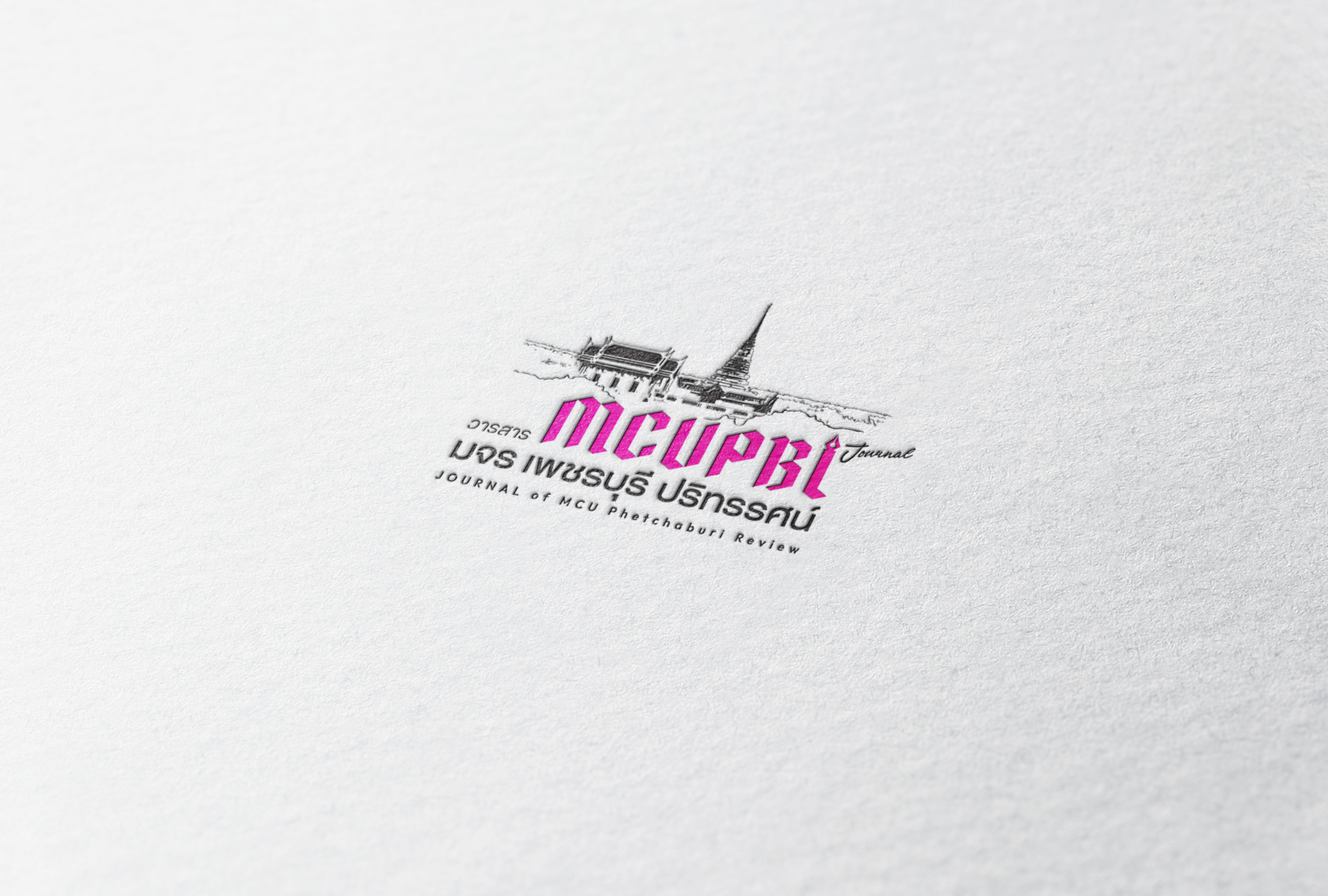Development of modern management concepts and techniques
Main Article Content
Abstract
Dministration or organizational management is necessary to use science. in the administration is inevitable Because the world today is a capitalist system. or profit-seeking consumerism and have competition to be superior to competitors both in terms of management and organizational development to achieve the goals of the organization Therefore, there are modern management principles. come into strategy or principles in management while also having academic The West is interested in Buddhist principles to combine and apply to management principles. because he assumed To apply the principles, methods, or techniques of western scholars to profit-oriented and competitive management, the successful adoption of modern management techniques depends on the leadership of the top management. In addition, effective organizational communication Cooperation of all personnel in the organization is the essence of this article. The implications of concept development are discussed. Modern management techniques that include management by objectives(Management by Objectives: MBO), participative management. (Participative Management), Benchmarking Management, Kaizen Management Techniques, Key Performance Indicator (KPI) Management, Time Management, Results Based Management (RBM).
Article Details

This work is licensed under a Creative Commons Attribution-NonCommercial-NoDerivatives 4.0 International License.
References
กัลยาณี สูงสมบัติ. (2551). เทคนิคการจัดการสมัยใหม่. กรุงเทพมหานคร: มหาวิทยาลัยเทคโนโลยีราชมงคลพระนคร.
เกรียงศักดิ์ เจริญวงศ์ศักดิ์. (2543). บริหารเวลาเพื่อความสำเร็จ. กรุงเทพมหานคร: ซัคเซสมีเดีย.
จารุณี จันทร์ลอยนภา. (2546). เทคนิคการบริหารเวลาสไตล์ CEO. กรุงเทพมหานคร: สารสาร มาร์เก็ตติ้ง.
ชัยรัตน์ บูรณะวิวัฒน์. (2537). เทคนิคการบริหารเวลาสำหรับนักบริหาร. กรุงเทพมหานคร: บัตเตอร์ฟลา.
โชติ บดีรัฐ. (2558). เทคนิคการบริหาร. กรุงเทพมหานคร: สำนักพิมพ์แห่งจุฬาลงกรณ์มหาวิทยาลัย.
ณัฏฐพันธ์ เขจรนันทน์. (2544). ยอดกลยุทธ์การบริหารสำหรับองค์การยุคใหม่. กรุงเทพมหานคร: เอ็กซเปอร์เน็ท.
ทศพร ศิริสัมพันธ์. (2543). การบริหารผลการดำเนินงาน (Performance Management) รวมบทความวิชาการ 100 ปี รัฐประศาสนศาสตร์ไทย. กรุงเทพมหานคร: ภาควิชารัฐประศาสนศาสตร์ คณะรัฐศาสตร์ จุฬาลงกรณ์มหาวิทยาลัย.
ปกรณ์ ปรียากร. (2538). ทฤษฎีและแนวคิดเกี่ยวกับการพัฒนา. กรุงเทพมหานคร: สามเจริญพานิช.
พจนานุกรม ฉบับราชบัณฑิตยสถาน พ.ศ. 2525 . (2538). พจนานุกรม ฉบับราชบัณฑิตยสถาน พ.ศ. 2525 พิมพ์ครังที่ 5. กรุงเทพมหานคร: อักษรเจริญทัศน์.
ยุวัฒน์ วุฒิเมธี. (2526). หลักการพัฒนาชุมชนและหลักการพัฒนาชนบท. กรุงเทพมหานคร: สำนักพิมพ์ไทยอนุเคราะห์.
วิทยากร เชียงกูล . (2527). การพัฒนาเศรษฐกิจสังคมไทย : บทวิเคราะห์. กรุงเทพมหานคร: สำนักพิมพ์ฉับเกระ.
วิรัช วิรัชนิภาวรรณ. (2532). หลักการพัฒนาชุมชน การพัฒนาชุมชนประยุกต์. กรุงเทพมหานคร: โอเดียนสโตร์.
สนธยา พลศรี. (2547). ทฤษฎีและหลักการพัฒนาชุมชน. พิมพ์ครั้งที่ 5. กรุงเทพมหานคร: โอเดียนสโตร์.
สัญญา สัญญาวิวัฒน์. (2525). การพัฒนาชุมชน. พิมพ์ครั้งที่ 2. กรุงเทพมหานคร: ไทยวัฒนาพานิช.
อำนวยชัย ปฏิพัทธ์เผ่าพงศ์. (2534). ชีวิตกับการใช้เวลา. กรุงเทพมหานคร: ดอกหญ้า.
David C. McClelland. (1961). The Achievement Society. New York: The Free Press.
Rensis Likert. (1967). New Pattern of Management. New York: McGraw-Hill Book,Co.


